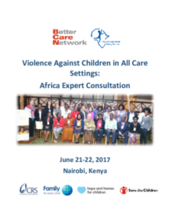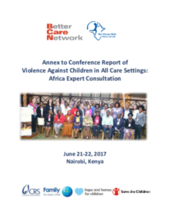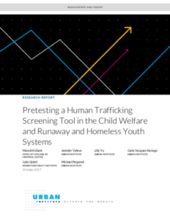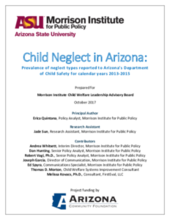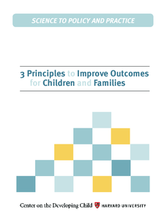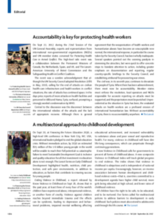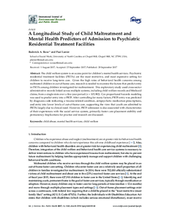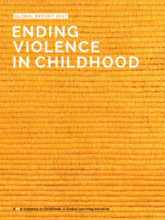Displaying 611 - 620 of 1090
This report describes the details of the Africa Expert Consultation: Violence Against Children in All Care Settings, which took place 21-22 June 2017.
This Annex compiles the presentations delivered at the 21-22 June 2017 Africa Expert Consultation on Violence Against Children in All Care Settings and is intended to accompany the Final Report of the meeting.
Aiming to assist providers to identify and better serve the needs of youth victims of human trafficking, this study developed and pretested a Human Trafficking Screening Tool used to identify youth in the child welfare system and runaway and homeless youth who have experiences of trafficking,
The objective of this project was to review a sample of reports made to Arizona's Department of Child Safety (DCS) with neglect allegations and identify the types of neglect present in the hotline narrative and investigation narrative.
This report from the the Center on the Developing Child at Harvard University in the United States argues that, to be maximally effective, policies and services should: (1) Support responsive relationships for children and adults, (2) Strengthen core life skills, and (3) Reduce sources of stress in the lives of children and families.
This editorial by The Lancet draws connections between early childhood development, education and childhood violence, illustrating the need for early and cross-sectoral investments in children.
This exploratory study used cross-sector administrative records linked across multiple systems, including child welfare records and Medicaid claims, from a single state in the U.S. over a five-year period, to investigate the factors that predict entry into psychiatric residential treatment facilities for children.
The report compiles information from a series of global research papers commissioned by Know Violence, presenting the scale and scope of childhood violence globally. Examples of preventative efforts from governments, communities, and organizations are provided to illustrate the feasibility of preventing violence on local and national levels.
The purpose of this article is to explore how child sexual abuse (CSA) prevention opportunities can include parents in new and innovative ways.
This report reviews the existing literature on the impact of child sexual abuse within various types of institutional care settings around the world.

